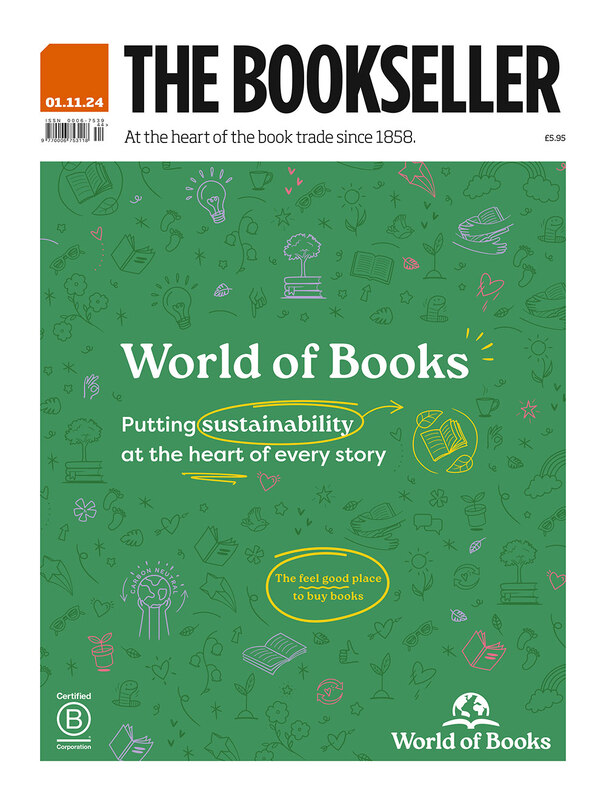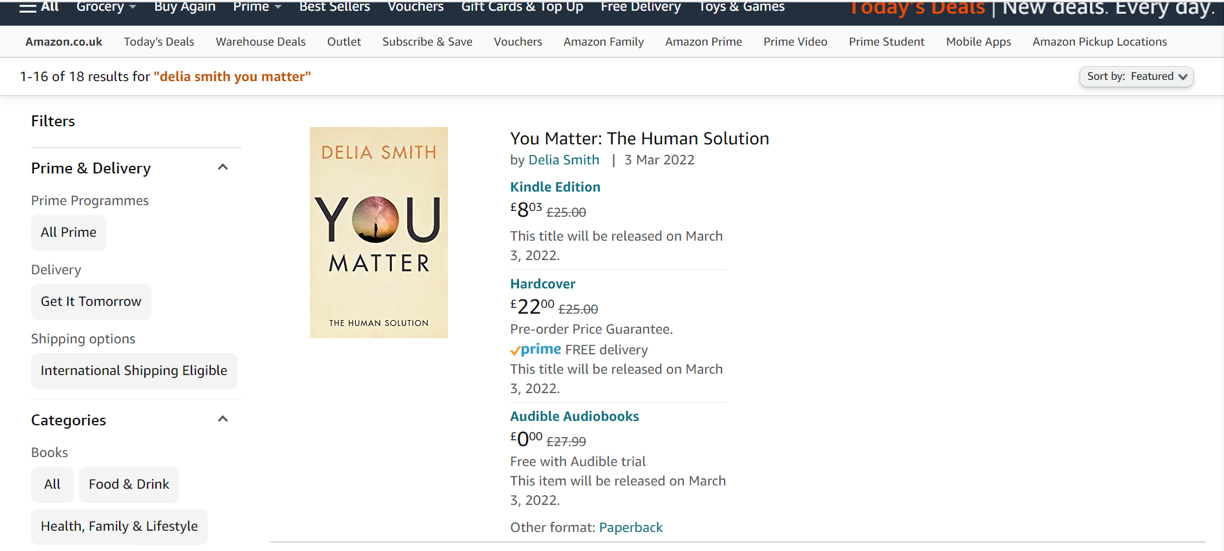You are viewing your 1 free article this month. Login to read more articles.
Algorithm says no
Since launching Mensch Publishing three years ago I have tried to use social media to promote titles. By and large I have linked to Amazon as it is the only retailer to cover the whole world (all Mensch titles are published globally) and in all formats, digital and print. I have received a certain amount of flak from those who think we should be linking to traditional bookshops or non-Amazon e-tailers. I don’t disagree. The threat of Amazon displacing the book trade’s energetic, competitive and diverse distribution channels through independent bookshops, chain booksellers, supermarkets, and specialist outlets is real and needs to be resisted. The problem is, of course that Amazon is very efficient, customer-friendly, and powerful.
Amazon’s dedication to its systems and non-human decision-making, its algorithms can misfire. Rather like the mega-computer, HAL, in "2001: A Space Odyssey", a glitch can lead to unexpected and undesirable outcomes
However, from time to time Amazon’s dedication to its systems and non-human decision-making, its algorithms can misfire. Rather like the mega-computer, HAL, in "2001: A Space Odyssey", a glitch can lead to unexpected and undesirable outcomes.
Last Autumn, Mensch was honoured to become Delia Smith’s publisher for her powerful book on the importance of humanity and how, by embracing unity, we can build a better future for all. The book comes out on 3rd March 2022 and we announced it some weeks ago, including, of course, listing on Amazon. The main edition is the paperback (the main format for this type of book, of course) with e-book and audiobook alongside from the outset. We have also produced a hardback – for libraries, collectors, and those readers who simply prefer hardbacks.
All these editions have been available for pre-order on Amazon. And then we noticed the most important paperback was not on the main page (see below).
We pointed this out to Amazon. After all, the paperback is more customer-friendly in terms of price than the hardback, but clearly in the current listing most customers will not spot the paperback link. The excellent Bloomsbury sales team (which is selling the book worldwide for Mensch) queried this with Amazon. This is the reply. "We’ve tested the search functionality and can confirm that it is working as designed. Factors such as the history of buyer viewings, the sales history of an item, price, and current availability all influence a product’s location in the search results. Due to the factors above, Amazon.com cannot guarantee that the product you are selling will appear in the first set of search results."
This says, in essence, that regardless of the right presentation for the customer, the algorithms will trump common sense. The problem appears to be that Amazon will only display three editions. This will change if a fourth edition outsells one of the three, but that is unlikely if it is effectively invisible.
This is naturally an irritation for both author and publisher and the fact that Amazon aren’t willing or able to override this setting is a huge frustration. I can understand how hard it would be to write software to cope with every idiosyncrasy of the book trade, but that is why human intervention should be feasible. The upside of this sorry tale is that "proper" booksellers who use human intelligence are for once in a strong position against the behemoth. By foregrounding paperbacks where Amazon’s algorithms will not, they’re more likely to get better sales.
However, the situation with Amazon remains problematic, and I’m sure Mensch is not alone in coming up against this "computer says no" scenario. I urge all publishers to look out for the same issue and put pressure on Amazon to prioritise paperback listings over hardbacks, where applicable. Surely, as a retailer relentlessly focused on making it easy for customers to part with their cash, the economic case should resonate.
Richard Charkin is non-executive director of Bonnier Books UK, as well as founder of Mensch Publishing. Previously he was executive director of Bloomsbury and chief executive of Reed International Books and Macmillan Publishers Limited.






















